Discovering the world of Welsummer chickens is an exciting journey for beginners looking to dive into poultry raising. From understanding their care needs to maximizing egg production, this comprehensive guide covers it all. Learn about the breed’s temperament, ideal housing, and health considerations. Explore the vibrant color varieties of Welsummer eggs and their winter care requirements. With insights on feeding, protection from predators, and growth stages, you’ll be equipped to raise happy and healthy Welsummer chickens in your backyard.
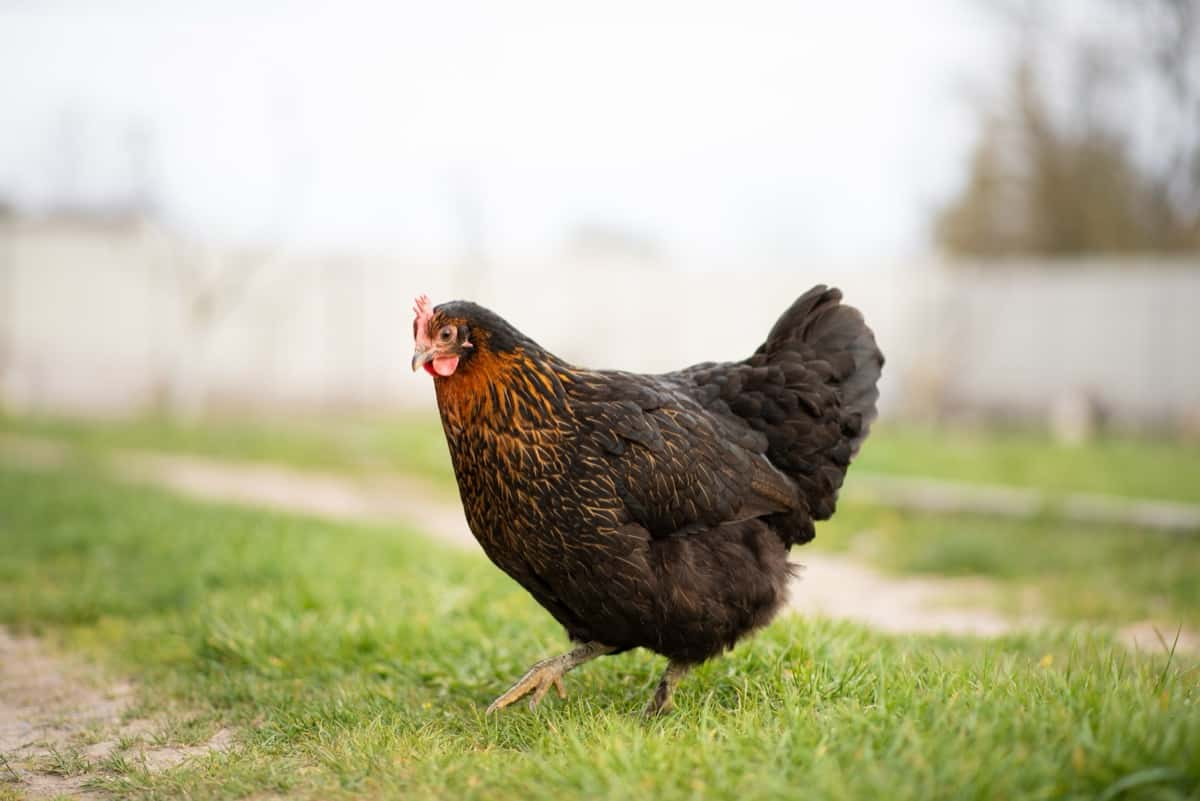
How to Raise Welsummer Chickens
Introduction to Welsummer Chickens
Welsummer chickens, originating in the Netherlands, are a popular backyard poultry breed known for their partridge feather pattern, friendly temperament, and dark brown eggs with speckles. Developed in the early 20th century, they are a cross between local landrace chickens and imported breeds like Partridge Cochin, Partridge Leghorn, Partridge Wyandotte, Barnevelder, and Rhode Island Red.
They have a distinctive appearance with a single comb, red wattles, yellow skin, legs, and a short horn-colored beak. The most common partridge color is dark brown, while roosters have chestnut brown hackle and saddle feathers. Welsummer chickens are hardy, resilient, and can withstand cold weather and predators. They also have an autosexing feature, allowing chicks to be easily sexed by their color at hatch.
Breed Overview
| Size | Medium |
| Weight | Rooster 7-9 lbs, Hen 5-6 lbs |
| Egg color | Dark brown with speckles |
| Egg size | Large |
| Egg production | 160-200 per year |
| Comb type | Single |
| Skin color | Yellow |
| Leg color | Yellow |
| Feathered legs | No |
| Temperament | Friendly, docile, calm |
| Purpose | Dual-purpose (eggs and meat) |
| Cold hardy | Yes |
| Heat tolerant | Yes |
| Broody | Rarely |
Reasons to Raise Welsummer Chickens
Welsummer chickens are a beautiful breed with a partridge feather pattern and rich, warm coloration. They have a friendly temperament, making them easy to handle and interact with. They lay large, dark brown eggs, sometimes called terracotta eggs, which are delicious and nutritious. Welsummer chickens are dual-purpose, making them suitable for both layers and meat production. They are excellent foragers, thriving on free-range or pasture-based systems, eating insects, worms, seeds, grasses, and other plants.
In case you missed it: Ultimate Guide to Raising Araucana Chickens: Breed Profile, Farming Economics, Diet, and Care
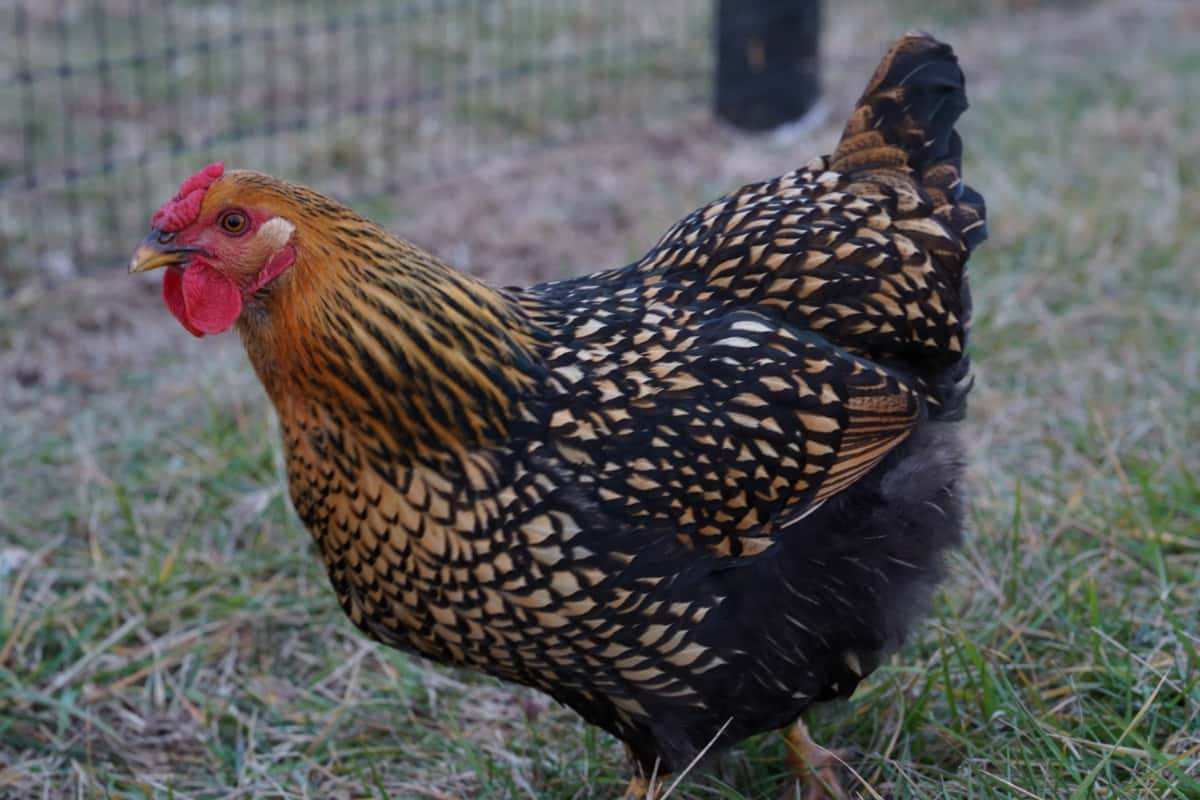
They are adaptable to different climates, with a thick feather layer keeping them warm in winter and heat well in shade and water. They are hardy and resilient, with a robust immune system and alertness to avoid predators. They also have a unique feature that allows for autosexing, with male chicks having a light yellow head spot and female chicks having a dark brown head stripe, making it easy to separate males and females for breeding or culling purposes.
Price
The cost of Welsummer chickens varies based on factors like source, quality, and availability. Typically, a day-old chick ranges from $5 to $10, while a pullet or cockerel can be $15 to $25, and a mature hen or rooster may cost $25 to $50. You can find them for sale online, from local breeders, hatcheries, or at poultry shows. Ensure you purchase from reputable sellers offering healthy and purebred birds.
Lifespan
Welsummer chickens generally live for 6-8 years, and their lifespan is influenced by genetics, diet, care, and environment. Providing a balanced diet, clean water, adequate shelter, hygiene, and protection from predators and weather can help extend their lifespan.
Choosing Your Chickens
Consider factors like the number, age, sex, and color when selecting Welsummer chickens. Check local regulations before purchase, and aim for at least 3-4 chickens for social needs. Choose from day-old chicks, pullets, or mature birds, considering your experience level and preferences. Decide on the sex based on your goals, and choose from the three main color varieties of Welsummer chickens.
Housing and Environment
Welsummer chickens thrive in a safe and comfortable environment. A secure coop with adequate ventilation, nesting boxes, and perches is vital for their protection and comfort. Additionally, ensuring access to an outdoor space for free-range foraging and dust bathing contributes to their natural behavior and well-being. Providing a safe, secure environment, along with access to fresh water and nutritious feed, is essential for their overall health and happiness.
Coop Requirements
Welsummer chickens require a well-ventilated and predator-proof coop with adequate space for roosting and nesting. The coop should be designed to offer protection from the elements and provide a comfortable living environment. Nesting boxes should be provided for egg-laying, and perches should be available for roosting at night. Additionally, ensuring a clean and well-maintained coop environment is crucial for their health and well-being.
In case you missed it: Ultimate Guide to Raising Polish Chickens: Breed Profile, Farming Economics, Diet, and Care
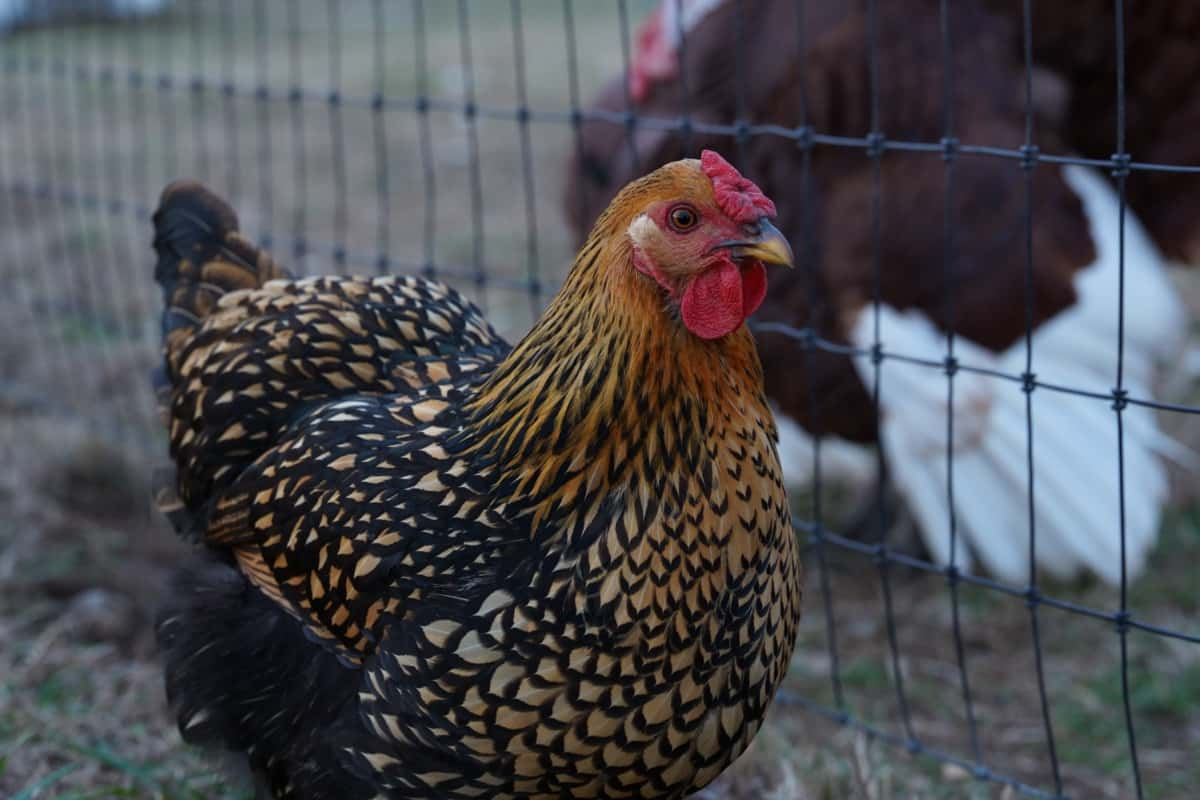
Outdoor Space
Welsummers thrive in free-range settings and display excellent foraging abilities. Providing ample outdoor space allows them to exhibit natural behaviors, promotes their overall well-being, and contributes to their egg-laying success. Access to an outdoor area for dust bathing is also essential for their hygiene and parasite control. Ensuring a safe and secure outdoor environment is crucial for their protection and well-being.
Feeding and Nutrition
A well-balanced diet health and productivity of Welsummer chickens. Providing high-quality commercial poultry feed supplemented with fresh fruits, vegetables, and occasional treats ensures their nutritional needs are met. Additionally, offering supplements such as molasses and providing access to sufficient daylight time contributes to their overall health and egg-laying abilities. Ensuring access to clean water and a well-balanced diet supports their overall health and productivity.
Dietary Needs
Welsummer chickens require a diet rich in protein, vitamins, minerals to support their growth, egg production, and overall health. Providing a well-balanced feed formulated for laying hens is essential for meeting their dietary needs. Additionally, offering access to fresh water and ensuring a clean and comfortable feeding environment is crucial for their well-being. Understanding their dietary needs and providing a suitable feeding environment contributes to their overall health and productivity.
Supplements and Treats
Supplementing their diet with calcium, grit, and occasional treats such as mealworms or fruits can provide additional nutrients and enrichment for Welsummer chickens. Understanding the appropriate supplements and treats contributes to their overall health and happiness. Additionally, providing access to light exposure and ensuring sufficient daylight time contributes to their egg-laying abilities and overall well-being. Offering a well-balanced diet and occasional treats supports their overall health and productivity.
Health and Wellness
Maintaining the health and well-being of Welsummer chickens is essential for their longevity and productivity. Understanding common health issues, providing regular check-ups, and ensuring a clean and comfortable living environment are crucial for their overall wellness. Additionally, implementing disease prevention and biosecurity measures contributes to their health and well-being. Regular check-ups and prompt intervention contribute to their overall health and well-being.
Common Health Issues
Welsummer chickens are generally hardy and do not have any serious health issues particular to their breed. However, like all chickens, they may be susceptible to common poultry health issues such as respiratory infections and parasites. Regular monitoring and prompt intervention are essential for maintaining their health and well-being. Understanding common health issues and providing timely care is crucial for their overall wellness.
Regular Check-Ups
Scheduling regular check-ups with a poultry veterinarian can help in the early detection, management of potential health issues. Routine examinations and vaccinations contribute to the overall wellness of the flock. Additionally, maintaining a clean and well-ventilated coop environment is essential for preventing health issues. Regular check-ups and prompt intervention contribute to their overall health and well-being.
In case you missed it: Ultimate Guide to Raising Australorp Chickens: Profile, Farming Economics, Egg Production, Diet, and Care
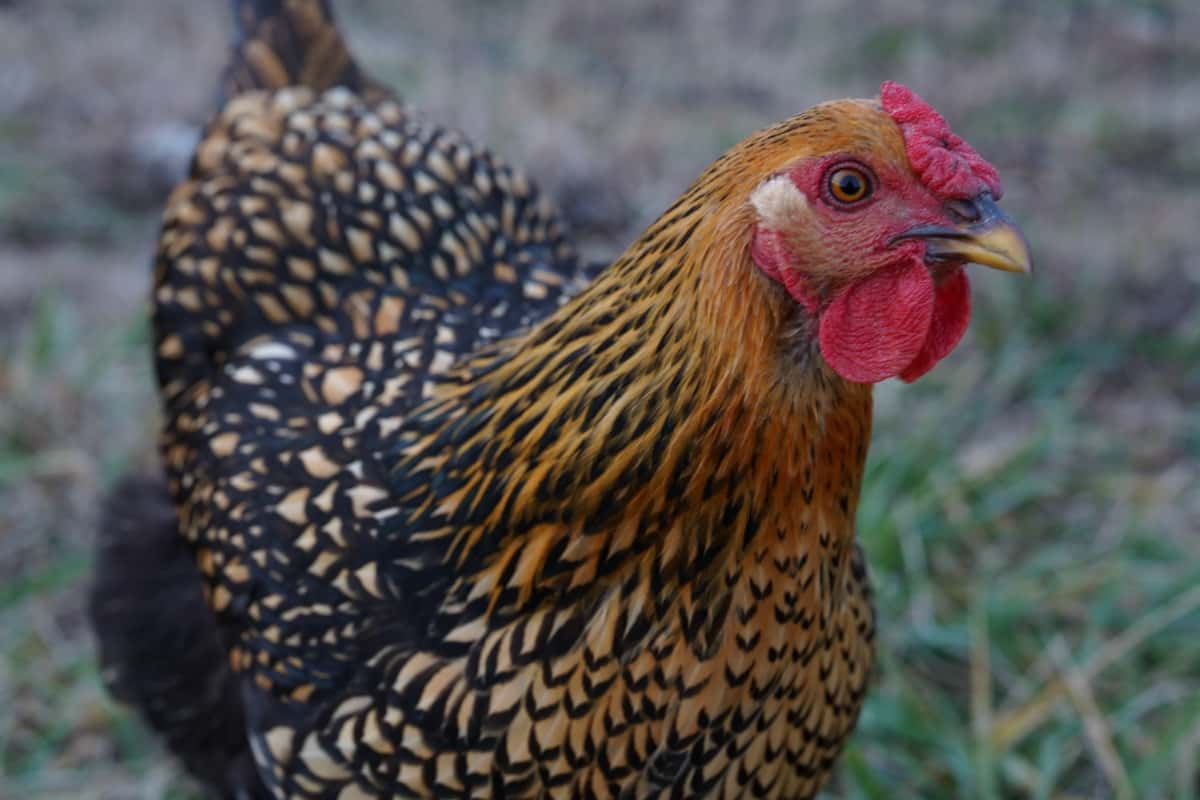
Egg Production
Welsummer hens are prolific layers, producing approximately 220-280 rich, dark-brown eggs per year. Understanding egg-laying frequency, care, and methods to improve egg health is essential for maximizing production. Providing clean nesting boxes, collecting eggs promptly, and ensuring a comfortable and stress-free environment contribute to maintaining egg quality and production. Monitoring egg-laying frequency and providing a suitable environment for egg-laying ensures consistent and healthy egg production.
Egg-Laying Frequency and Care
Monitoring egg-laying frequency, providing clean nesting boxes, and collecting eggs promptly contribute to maintaining egg quality and minimizing stress on the hens. Creating a suitable environment for egg-laying ensures consistent and healthy egg production. Additionally, providing a well-balanced diet and access to clean water supports their egg-laying abilities and overall health. Monitoring egg-laying frequency and providing a suitable environment for egg-laying ensures consistent and healthy egg production.
Improving Egg Health
Ensuring a well-balanced diet, providing access to clean water, and maintaining a clean and comfortable nesting environment can contribute to improved egg health. Additionally, offering supplemental calcium and ensuring sufficient daylight time supports their overall health and egg-laying abilities.
Providing a suitable environment for egg-laying and maintaining a clean and stress-free environment contributes to their overall health and productivity. Additionally, maintaining a clean and well-ventilated coop environment is essential for improving egg health and maintaining high-quality egg production.
Breeding Welsummer Chickens
Breeding Welsummer chickens requires careful selection, proper mating, and attention to breed standards to maintain the breed’s characteristics. Understanding breeding programs, incubation, and raising chicks is essential for successful breeding practices. Additionally, selecting healthy breeding stock and providing a suitable environment for mating and incubation contributes to successful breeding outcomes.
Breeding Programs
Participating in breeding programs and adhering to breed standards can contribute to the preservation and improvement of Welsummer chicken traits. Collaborating with experienced breeders and poultry organizations can provide valuable guidance. Additionally, maintaining detailed breeding records and selecting birds with desirable traits supports the success of breeding programs.
Incubation and Hatching
Understanding the incubation process, proper temperature, humidity, and egg turning is crucial for successful hatching. Providing a reliable incubator and ensuring a clean and stable incubation environment supports successful hatching outcomes. Additionally, monitoring egg development and providing appropriate care during the incubation period contribute to successful hatching.
Raising Chicks and Farming Practices
Raising Welsummer chicks requires providing a warm and secure brooder setup, suitable feeding, and attentive care. Understanding brooder setup, feeding, and handling practices supports the healthy growth and development of chicks. Additionally, providing access to clean water, suitable feed, and a stress-free environment contributes to the successful rearing of Welsummer chicks.
Preparation of Backyard
Preparing the backyard for Welsummer chickens involves creating a safe and predator-proof environment. Implementing predator prevention measures, securing the coop, and providing suitable outdoor space supports a safe and comfortable living environment. Additionally, ensuring a clean and well-maintained backyard environment promotes the well-being and natural behavior of Welsummer chickens.
Brooder Setup
Setting up a brooder involves providing a warm, draft-free, and secure space for raising chicks. Implementing suitable heating, bedding, and feeding arrangements supports the healthy growth and development of chicks. Additionally, maintaining a clean and comfortable brooder environment contributes to the well-being and vitality of Welsummer chicks.
Feeding and Care
Providing a well-balanced and nutritious diet, access to clean water, and suitable feeding practices supports the growth and development of Welsummer chicks. Understanding their dietary needs and providing appropriate care contribute to their healthy and robust growth. Additionally, monitoring their health and behavior supports their overall well-being during the early stages of development.
In case you missed it: Silkie Chicken Farming: Raising Practices, Varieties, Egg Production, Diet, and Care
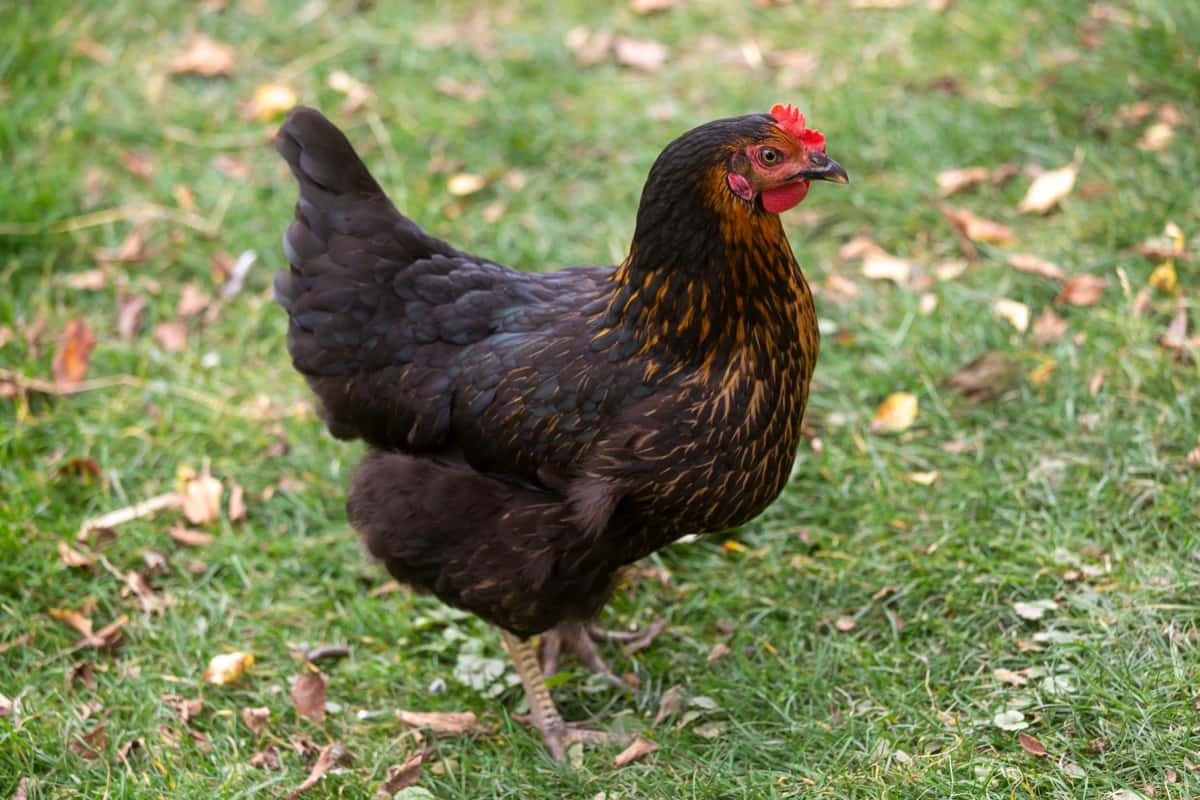
Handling and Behavior
Understanding the behavior and handling of Welsummer chicks is essential for establishing a positive and stress-free relationship. Providing gentle and careful handling, observing their behavior, and ensuring a calm and secure environment contribute to their well-being and socialization. Additionally, fostering positive interactions and minimizing stress supports the healthy development of Welsummer chicks.
Socialization
Socializing Welsummer chicks involves promoting positive interactions, reducing stress, and ensuring a comfortable and secure environment. Providing opportunities for exploration, gentle handling, and exposure to varied environments supports their social development and adaptability. Additionally, promoting positive interactions and minimizing stress contributes to their well-being and socialization.
Understanding Chicken Behavior
Understanding Welsummer chickens’ natural behavior is essential for providing a suitable and stress-free environment. Observing their social structure, foraging behavior, and communication patterns supports their well-being and natural development. Additionally, providing opportunities for natural behaviors and a secure living environment supports their overall behavior and well-being.
Seasonal Care
Adapting care practices to seasonal changes is essential for supporting the health and well-being of Welsummer chickens. Implementing winter preparations, summer management, and adjusting feeding and housing practices supports their comfort and productivity. Additionally, monitoring their health and behavior and providing suitable care during seasonal changes contributes to their overall well-being.
Winter Preparations
Winter preparations involve providing suitable shelter and access to water and adjusting feeding practices to support the well-being of Welsummer chickens during cold weather. Implementing measures to prevent frostbite, ensuring adequate heating, and supporting a well-ventilated yet draft-free environment for their comfort and health. Additionally, monitoring their well-being and adjusting care practices according to winter conditions contributes to their overall health and productivity.
Summer Management
- Providing shade.
- Ensuring access to clean water.
- Adjusting feeding practices to support their comfort and well-being.
Implementing measures to prevent heat stress, providing adequate ventilation, and adjusting care practices according to summer conditions support their overall health and productivity. Additionally, monitoring their behavior and well-being contributes to their comfort during hot weather.
Predator Prevention
Protecting Welsummer chickens from predators involves implementing measures to secure the coop, providing suitable fencing, and minimizing potential threats. Understanding common predators, securing the coop, and providing suitable lighting and surveillance support the safety and protection of Welsummer chickens. Additionally, implementing predator prevention measures and regular inspections contribute to the safety and well-being of the flock.
Identifying Threats
Recognizing potential threats to Welsummer chickens involves understanding common predators, disease risks, and environmental hazards. Observing their behavior, monitoring the surrounding environment, and implementing suitable preventive measures support the safety and well-being of the flock. Additionally, identifying potential threats and taking proactive steps to minimize risks contributes to the overall protection of Welsummer chickens.
Protective Measures
Implementing protective measures such as secure fencing, predator-proof coop design, and biosecurity protocols supports the safety and well-being of Welsummer chickens. Providing adequate lighting, surveillance, and implementing measures to minimize potential risks contribute to the overall protection of the flock. Additionally, maintaining a clean and secure living environment supports the safety and comfort of Welsummer chickens.
Disease Prevention and Biosecurity
Preventing the spread of disease and maintaining biosecurity measures are essential for protecting the health of Welsummer chickens. Implementing quarantine protocols, maintaining hygiene practices, and monitoring the health of the flock support disease prevention and biosecurity.
Vaccination and Quarantine
Administering appropriate vaccinations, implementing quarantine practices, and working with a poultry veterinarian to support disease prevention and biosecurity. Following recommended vaccination schedules and maintaining quarantine protocols for new birds contribute to the overall health and protection of Welsummer chickens. Additionally, monitoring their health and well-being supports disease prevention and biosecurity.
Cleaning and Disinfection
Maintaining a clean, hygienic living environment is essential for preventing disease and promoting the health of Welsummer chickens. Implementing regular cleaning and disinfection practices for the coop, nesting boxes, and feeding areas supports disease prevention and overall hygiene. Additionally, maintaining a clean and well-ventilated environment contributes to the health and well-being of the flock.
Molting Management
Understanding the molting process and providing appropriate care supports the health and well-being of Welsummer chickens during this natural cycle. Adjusting feeding practices, providing suitable shelter, and monitoring their nutritional needs contribute to their comfort and health during molting. Additionally, providing a stress-free environment and suitable care practices support their overall well-being during the molting period.
In case you missed it: Ultimate Guide to Raising Brahma Chickens: Care, Feeding, Egg Production, and Breeding
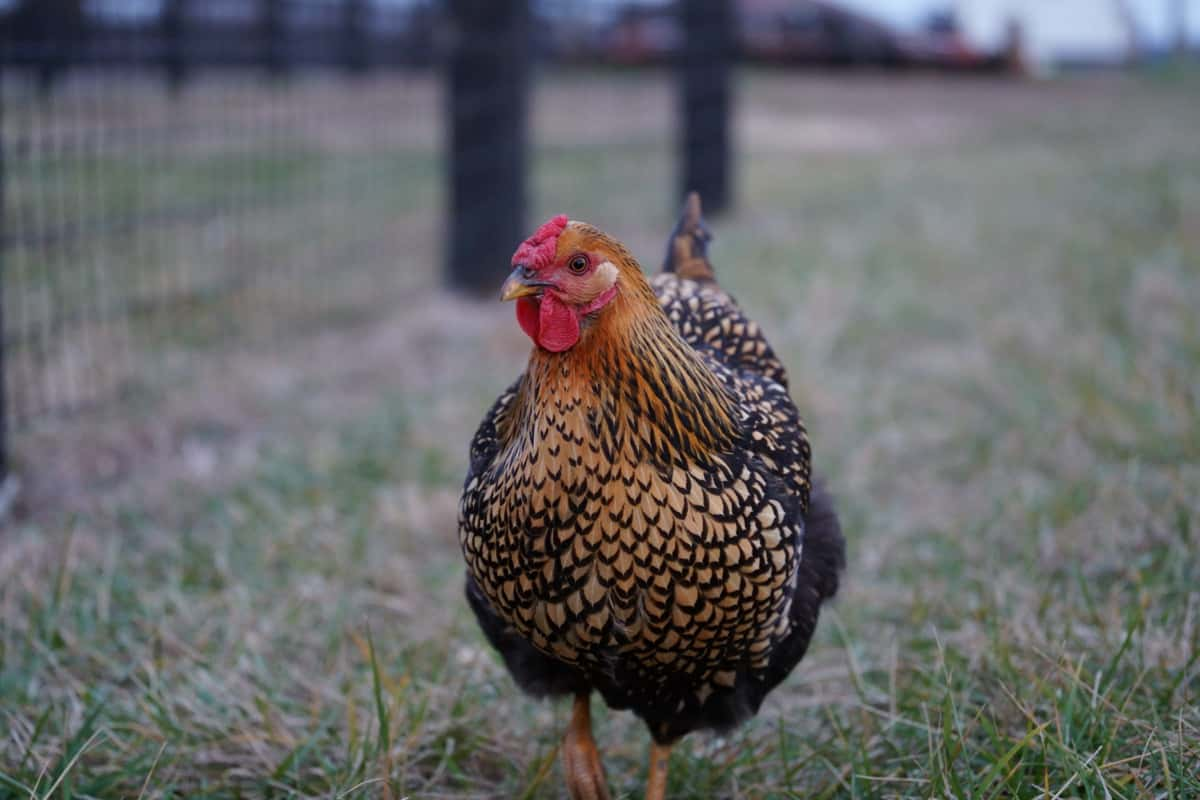
Understanding Molting
Molting is a natural process in chickens shed and regrow feathers. Understanding the stages of molting, adjusting feeding practices, and providing suitable care support the health and well-being of Welsummer chickens during this period. Additionally, monitoring their nutritional needs and ensuring a stress-free environment contribute to their comfort and productivity during molting.
Supporting Your Flock
Supporting the overall well-being of Welsummer chickens involves providing attentive care, suitable living conditions, and access to nutritious feed and clean water. Understanding their behavior, monitoring their health, and supporting a stress-free environment for the comfort and productivity of the flock. Additionally, fostering positive interactions and providing suitable living conditions contribute to the overall well-being of Welsummer chickens.
Record Keeping and Management
Maintaining detailed records of breeding, health, and production supports the effective management of Welsummer chickens. Accurate records of vaccinations, breeding outcomes, and egg production contribute to informed decision-making and care practices. Additionally, monitoring their growth and behavior and maintaining detailed records support the overall management of the flock.
Importance of Records
Detailed records of breeding, health, and production are essential for effective management and decision-making. Accurate records of vaccinations, breeding outcomes, and egg production support informed care practices and contributed to the overall success of Welsummer chicken management. Additionally, maintaining detailed records and monitoring their well-being supports the health and productivity of the flock.
Tools and Techniques
Utilizing appropriate tools and techniques for housing, feeding, and care practices supports the effective management of Welsummer chickens. Implementing suitable equipment, feeding systems, and health monitoring tools contributes to the flock’s overall well-being and productivity. Additionally, staying informed about innovative tools and techniques supports the continuous improvement of care practices for Welsummer chickens.
Conclusion
Raising Welsummer chickens can be a rewarding experience for beginners. With proper care, attention to their needs, and selection of healthy birds, you can enjoy fresh eggs, colorful plumage, and the joys of backyard poultry keeping.
Note: The images presented in this post are intended solely for representation purposes. The images are meant to serve as visual aids and should not be relied upon as accurate representations of their real-life counterparts.
- Types of Pesticides Used in Agriculture: A Beginner’s Guide
- Economical Aquaculture: A Guide to Low-Budget Fish Farming
- 15 Common Planting Errors That Can Doom Your Fruit Trees
- How to Make Houseplants Bushy: Effective Tips and Ideas
- Innovative Strategies for Boosting Coconut Pollination and Yield
- Pollination Strategies for Maximum Pumpkin Yield
- The Complete Guide to Chicken Fattening: Strategies for Maximum Growth
- Natural Solutions for Tulip Problems: 100% Effective Remedies for Leaf and Bulb-Related Issues
- Revolutionizing Citrus Preservation: Towards a Healthier, Greener Future
- Natural Solutions for Peony Leaf and Flower Problems: 100% Effective Remedies
- Maximizing Profits with Avocado Contract Farming in India: A Comprehensive Guide
- Natural Solutions for Hydrangea Problems: 100% Effective Remedies for Leaf and Flowers
- The Ultimate Guide to Choosing the Perfect Foliage Friend: Bringing Life Indoors
- From Sunlight to Sustainability: 15 Ways to Use Solar Technology in Agriculture
- The Ultimate Guide to Dong Tao Chicken: Exploring from History to Raising
- The Eco-Friendly Makeover: How to Convert Your Unused Swimming Pool into a Fish Pond
- Mastering the Art of Delaware Chicken Farming: Essentials for Healthy Backyard Flocks
- 20 Best Homemade Fertilizers for Money Plant: DIY Recipes and Application Methods
- How to Craft a Comprehensive Free-Range Chicken Farming Business Plan
- Brighten Your Flock: Raising Easter Egger Chickens for Beauty and Bounty
- How to Optimize Your Poultry Egg Farm Business Plan with These Strategies
- Subsidy for Spirulina Cultivation: How Indian Government Schemes Encouraging Spirulina Farmers
- Ultimate Guide to Raising Dominique Chickens: Breeding, Feeding, Egg-Production, and Care
- Mastering the Art of Raising Jersey Giant Chickens: Care, Feeding, and More
- Ultimate Guide to Raising Legbar Chickens: Breeding, Farming Practices, Diet, Egg-Production
- How to Raise Welsummer Chickens: A Comprehensive Guide for Beginners
- How to Protect Indoor Plants in Winter: A Comprehensive Guide
- Ultimate Guide to Grow Bag Gardening: Tips, Tricks, and Planting Ideas for Urban Gardeners
- Guide to Lotus Cultivation: How to Propagate, Plant, Grow, Care, Cost, and Profit
- Agriculture Drone Subsidy Scheme: Government Kisan Subsidy, License, and How to Apply Online
- Ultimate Guide to Raising Araucana Chickens: Breed Profile, Farming Economics, Diet, and Care
- Bringing Hydroponics to Classroom: Importance, Benefits of Learning for School Students
- Ultimate Guide to Raising Polish Chickens: Breed Profile, Farming Economics, Diet, and Care
- Ultimate Guide to Raising Australorp Chickens: Profile, Farming Economics, Egg Production, Diet, and Care
- Silkie Chicken Farming: Raising Practices, Varieties, Egg Production, Diet, and Care
- Sussex Chicken Farming: Raising Practices, Varieties, Egg Production, Diet and Care